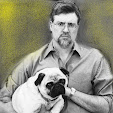 Well, I managed to read my way through the massive and generally interesting new Highsmith biography, The Talented Miss Highsmith: The Secret Life and Serious Art of Patricia Highsmith by Joan Schenkar. I'm not much of a reader of biography, but since I have a significant readerly attachment to Highsmith, I thought I'd better read this book. (I've already read the previous Highsmith biography, Beautiful Shadow by Andrew Wilson, as well as Marijane Meaker's memoir, Highsmith: A Romance of the 1950s. I've read 21 of Highsmith's books, including all the major novels except This Sweet Sickness.)
Well, I managed to read my way through the massive and generally interesting new Highsmith biography, The Talented Miss Highsmith: The Secret Life and Serious Art of Patricia Highsmith by Joan Schenkar. I'm not much of a reader of biography, but since I have a significant readerly attachment to Highsmith, I thought I'd better read this book. (I've already read the previous Highsmith biography, Beautiful Shadow by Andrew Wilson, as well as Marijane Meaker's memoir, Highsmith: A Romance of the 1950s. I've read 21 of Highsmith's books, including all the major novels except This Sweet Sickness.)Ultimately, the Schenkar biography casts some light on the novels, but the criticism only goes so far (and granted, Schenkar doesn't pretend to provide in-depth readings of the books). I found the background on Highsmith's work in the Golden Age comics industry illuminating (Highsmith basically tried to suppress this information). Comics superheroes of course have doubles -- Clark Kent and Superman, etc. -- and this sort of doubling and theme of secret, hidden lives is important to understanding Highsmith (and it was important in a number of ways to her own identity). Schenkar also lists some of the emotional sources of Highsmith's characters (which I find more interesting as a writer than a reader).
Because of Highsmith's nature, this book is tough and relentless reading, too. Highsmith was a weird, often isolated, mean, bitter, and hateful person. I basically knew she was misanthropic, but she was impolite, too. Her detachment, anger, obsessiveness, paranoia, and lack of tolerance -- so biographically off-putting -- clearly provide some part of the foundation of her fiction's power. I'm a little wary of cultivating these traits, however.
This biography leaves some questions unanswered, but I don't think there needs to be another Highsmith biography (at least not yet). Maybe some academic critics can say something more about the fiction. For general readers, I'd be more interested in seeing a volume of letters or perhaps excerpts from her "cahiers"--the 38 notebooks found in a linen closet after her death (she also had 18 volumes of diary). Incidentally, she always subdivided her cahiers into the following sections: People and Places, Keime (i.e., "germs" of ideas, stories, etc.), Daily Notes, Favorite Quotes, Ideas for Longer Fictions, and "Notes on an Ever-Present Subject" (i.e., homosexuality).

